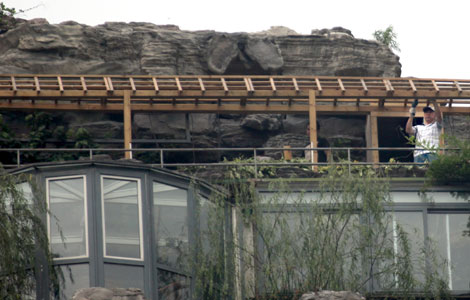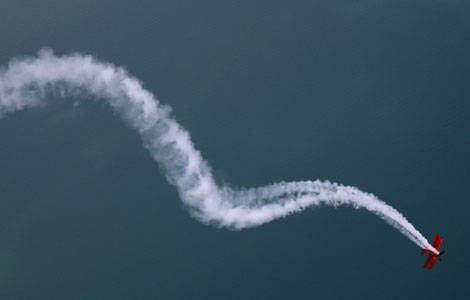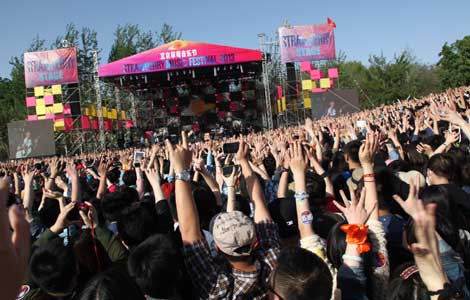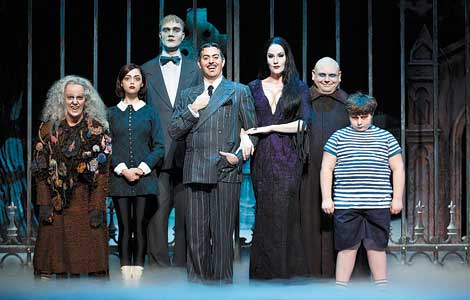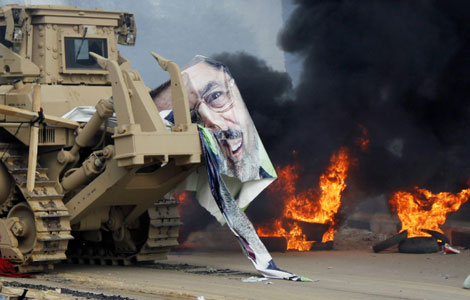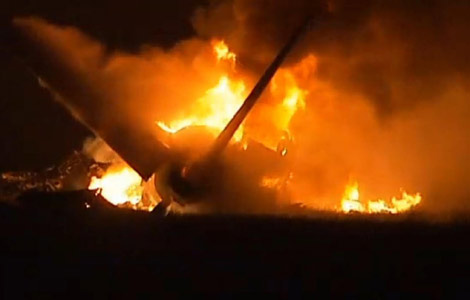
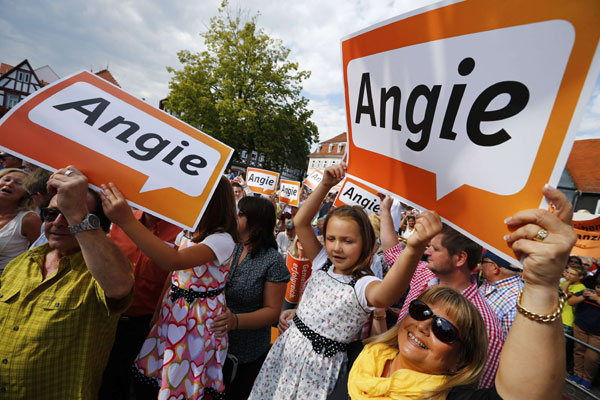 |
|
Supporters of German Chancellor Angela Merkel hold up placards during her inaugural election campaign rally in Seligenstadt near Frankfurt on Wednesday. [Photo/Agencies] |
German Chancellor Angela Merkel chose a picturesque small town to launch into full campaign mode for an election in which she is seen as likely to stay at the helm of Europe's biggest economy.
Speaking in the old town square of Seligenstadt, near Frankfurt, late on Wednesday, Merkel, affectionately dubbed "Mutti", or mum, made the case that her conservative government is the most successful since the reunification of Germany in 1990.
Undeterred by some hecklers, she pointed at achievements in health, education and elderly care as she kicked off a whirlwind campaign tour in which she will speak at 56 events in 40 days.
Many in the enthusiastic crowd of about 1,000 supporters waved signs saying "Angie".
"Her speech was extraordinary," gushed one supporter, economics student Christoph Koser, 24. "She manages to engage us in her party because in her program there is something for everyone."
Merkel, who is despised in parts of crisis-hit Europe for insisting on tough austerity measures, is popular in Germany, where many see her as a responsible guardian of the public purse.
Pushing her message of fiscal discipline, Merkel told the crowd: "We have seen in Europe what happens when debts are too high. Growth on borrowed money - that's impossible."
The launch ahead of the Sept 22 vote came as new data showed the German economy grew 0.7 percent in the second quarter, helping propel the eurozone out of its stubborn recession.
To many observers, the calm and pragmatic Merkel, 59, Forbes magazine's most powerful woman in the world, seems an immovable force, and few can imagine she will not stay in power.
"She has become something like the mother of the nation, in quotation marks," said political scientist Oskar Niedermayer of Berlin's Free University.
"A person like you and me who has not lost her head like many other politicians, who has the confidence of the people, seems natural and has the image of the carer-in-chief."
Niedermayer said that in Germany, where the unemployment rate is 6.8 percent, the eurozone crisis seems like an abstract threat to many and "the citizens believe she has steered Germany through the crisis".
"She is also staying out of intra- and interparty battles and quarrels," he added. "She has a rather presidential leadership style. She seems unflappable and sober, and the people like that."
Merkel's personal popularity lead over her top challenger, Peer Steinbrueck, of the Social Democratic Party, has narrowed a few points but remains huge at 54-23 percent, said the latest Forsa Institute survey.
"It will be an extremely personalized campaign, ... highly focused on the chancellor," said Martin Koopmann of the Genshagen Foundation think tank.
